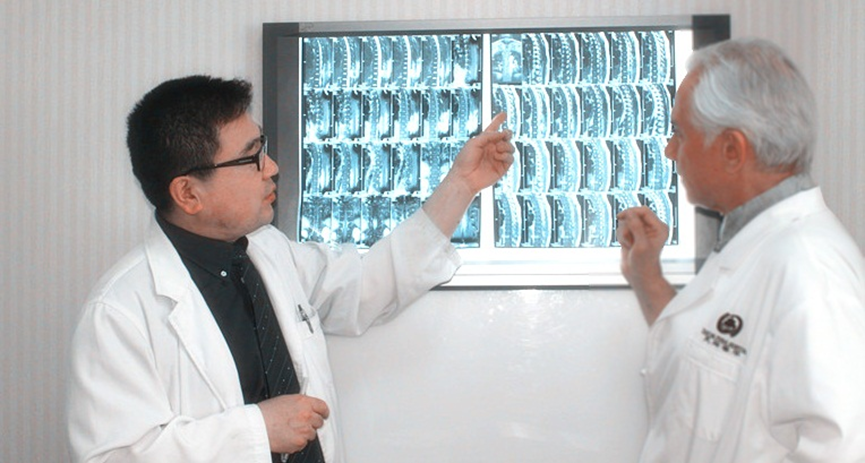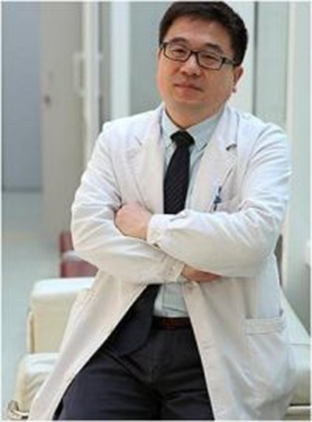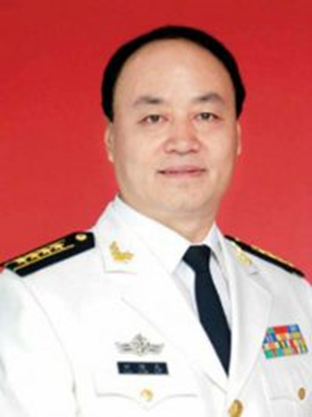
Directed by Dr. Xiaodi Han, the neurosurgical team at Beijing Puhua International Hospital has extensive cumulative training and experience over a wide range of conditions and treatments, from observation for relatively minor neurological injuries (such as brain concussions) to the diagnosis and treatment of more advanced neurosurgical issues. Our neurosurgical team not only is able to do various complex surgeries, but also is brought line with international treatment. Equipped with the most advanced technology, Puhua provides the most suitable treatment plan for each patient, thereby to achieve the best treatment effect.
The neurosurgery department has developed several specialty medical programs, such as: “Operation+ Intraoperative Radiotherapy(IORT) + BCNU wafer” to treat malignant brain tumor, “Spinal cord reconstruction surgery + neurotropic factors treatment” to treat spinal cord injury , digital cranioplasty, Stereotactic technique to treat Parkinson’s Disease, etc
The following are the conditions that can be treated by our neurosurgical team:
Autism
Astrocytoma
Brain Injury
Brain Tumor
Cerebral Palsy
Cerebrovascular Disorders
Ependymoma
Glioma
Meningioma
Olfactory Groove Meningioma
Parkinson’s Disease
Pituitary Tumor
Seizure Disorder
Skull Based Tumors
Spinal Cord Injury
Spinal Tumor
Stroke
Torsion-spasm
Key Specialists
Dr. Xiaodi Han—Vice President & Director of Neurosurgery Center

Professor, Doctoral Advisor, Chief Scientist of Targeted Therapy of Glioma, Director of the Neurosurgical Department, Reviewer of Jouranl of Neuroscience Research, Member of Evaluation Committee of Natural Science Foundation of China (NSFC).
Dr. Xiaodi Han graduated from Shanghai Medical University (now merged with Fudan University) in 1992. In the same year, he came to work at the Neurosurgery Department of Beijing Tiantan Hospital. There, he studied under Professor Jizhong Zhao, and participated in many important research projects of Beijing. He is also the editor of many neurosurgery books. Since working at the Neurosurgery Department of Beijing Tiantan Hospital, he was in charge of comprehensive treatment of glioma and various kinds of neurosurgical treatments. He has worked at Alfred Hospital, Melbourne, Australia, and Wichita State University, Kansas, America. Subsequently, he has worked at the Neurosurgery Department of University of Rochester Medical Center where he was responsible for post-graduate research specializing in stem cell treatment.
Currently, Dr. Xiaodi Han is the Director of Neurosurgery Center of Beijing Puhua International Hospital. He devotes himself to clinical work and teaching research of stem cell treatment for neurosurgical diseases. His creative “spinal cord reconstruction” surgery benefits thousands of patients from all around the world. He is ingenious at surgical treatment and comprehensive postoperative treatment for glioma, which has brought him international recognition. In addition, he is a forerunner of stem cell targeted therapy of glioma research, both at home and overseas.
Areas of specialization: Brain tumor, spinal cord reconstruction, Parkinson's disease.
Dr. Zengmin Tian—Director of Stereotactic and Functional Surgery, Neurosurgery Center

Dr. Tian is the former Vice-president of Navy General Hospital, PLA China. He was also the Director of Neurosurgery Dept. when he was in Navy General Hospital. Dr. Tian has been devoting himself in scientific research and clinical application of stereotactic surgery for more than 30 years. In 1997, he had successfully completed the first brain repair surgery with the guidance of robot operation system. Since then, he had performed over 10,000 brain repair surgeries and had taken part in National Research Projection. In recent years, Dr. Tian has successfully applied the 6th generation of brain surgery robot to clinical treatment. This 6th generation brain surgery robot is able to accurately position the lesion with frameless positioning system. A further combination of brain repair surgery with stem cell implantation increased the clinical treatment effects by 30~50%. Dr. Tian’s this breakthrough was reported by American Popular Science magazine.
Until now, he has successfully completed thousands repair operations of brain and spine. Mainly for a variety of severe brain damage, such as: cerebral palsy, cerebellum atrophy, sequelae of brain injury, Parkinson’s disease, autism, epilepsy, hydrocephalic, etc. His patients come from more than 20 countries around the world. His surgery robot has international patents, acquired China’s product permit of medical equipment license. His remarkable contribution and distinguished achievements made him renowned both at home and overseas: Executive committee of International Society for Neurosurgical Academy; Editorial Board Member of International Journal of Stereotactic Surgery; Senior Visiting Scholar in University of Washington.
Areas of specialization: Brain injury, stroke, cerebral palsy, Parkinson’s Disease, seizure disorder/epilepsy, autism, torsion-spasm.








